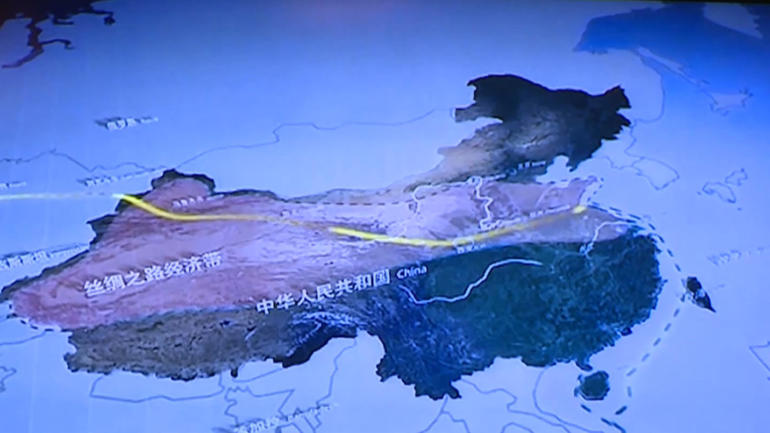It has been 6 years since China unveiled its massive global infrastructure plan: the Belt-and-Road Initiative. How has the project fared so far? A leading American think-tank spent months in the field to find out.
CGTN’s Wang Guan reports.
There are vastly different narratives about China’s Belt and Road Initiative. Narratives that often have geopolitical overtones.
“In large part, depending on what their attitudes toward China is. I often joked that it is an inkblot test that reveals attitudes towards China,” Vice President for International Security and Diplomacy of the Asia Society Policy Institute Daniel Russel said.
Russel is former President Barack Obama’s point person on Asian affairs. He recently led a panel of experts from Asia Society’s Policy Institute.
The panel spent months in Southeast Asia to study rail, port and energy projects in the Belt and Road Initiative. Their conclusion: the Chinese infrastructure plan is here to stay.
The study states the infrastructure plan can meet Asia’s huge demand for infrastructure, which far exceeds what most regional economies can finance on their own. But, there are challenges, too.
In some cases, rushed agreements between Chinese construction firms and host countries undercut the project’s sustainability, creating problems like inflated costs or high debt. In other cases, there is a lack of environmental and social impact assessments before projects began.
Russel says Beijing is increasingly aware of these criticisms and has taken steps to address them. One recent example is the renegotiation of Malaysia’s railway construction.
“China agreed to re-negotiate. China did not try to muscle and strong-arm Malaysia into honoring the flawed terms reached under the previous government. A new solution with a new contract that scaled back the costs of the BRI project. That followed a pattern in Myanmar with Kyaukpyu port, etc,” Russel said.
The report recommended that Beijing adopt a globally-accepted standard contract for projects and conduct more careful studies of each project’s commercial viability. It also urged Beijing to set up a one-stop information platform, including a local grievance mechanism.
“Wherever we went in Southeast Asia, there was a sense of frustration about a lack of transparency and information. If we see a problem, if we have a suggestion, or if we want to know how to apply to find a job, we don’t know who to talk to. Our view would be trying to build an open searchable, accessible English-language database of BRI projects,” Russel said.
The panel cautioned against geo-politicizing the Belt and Road initiative, saying people should identify specific issues where they exist, instead of painting all projects with a single brush.
 CGTN America
CGTN America

